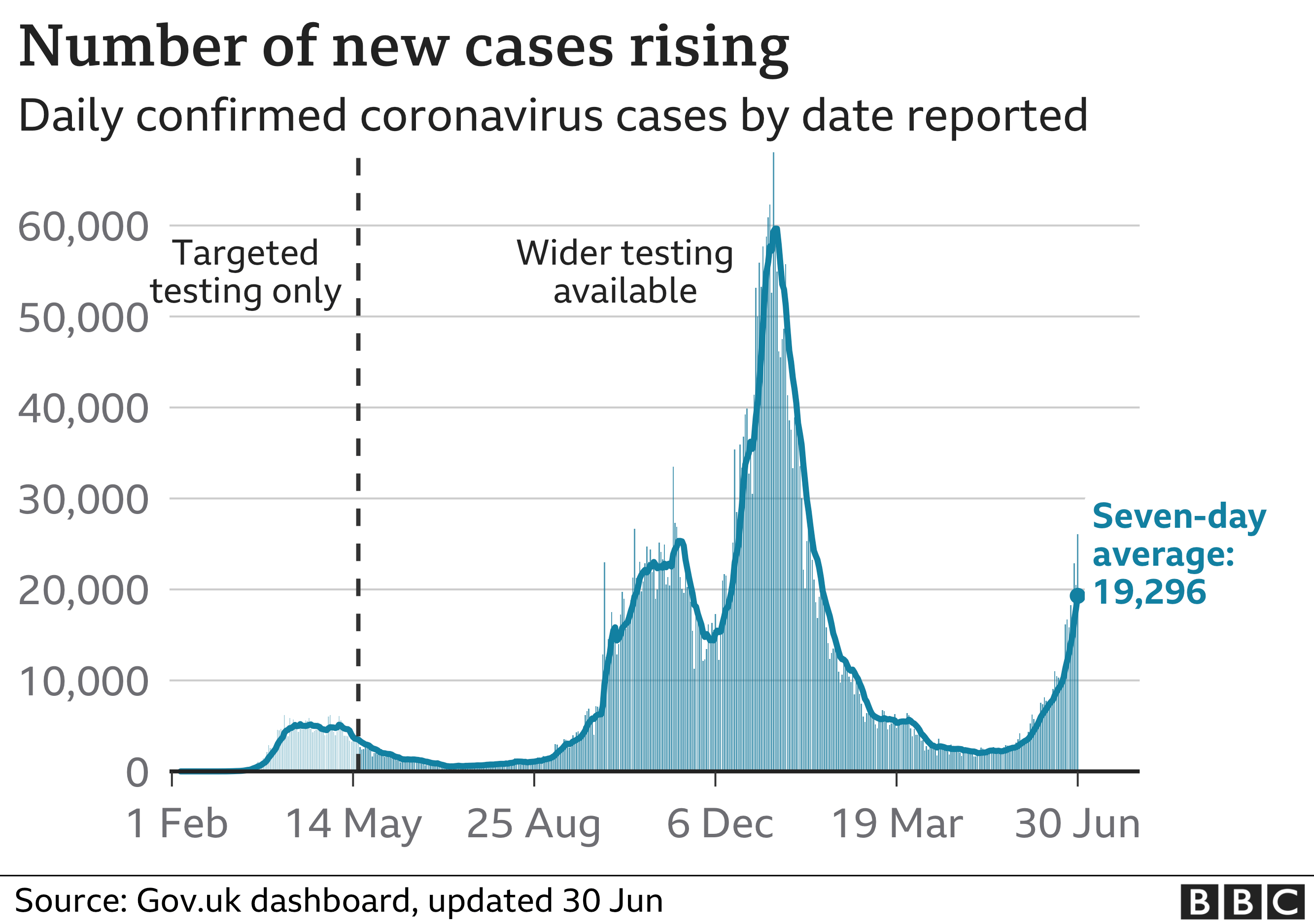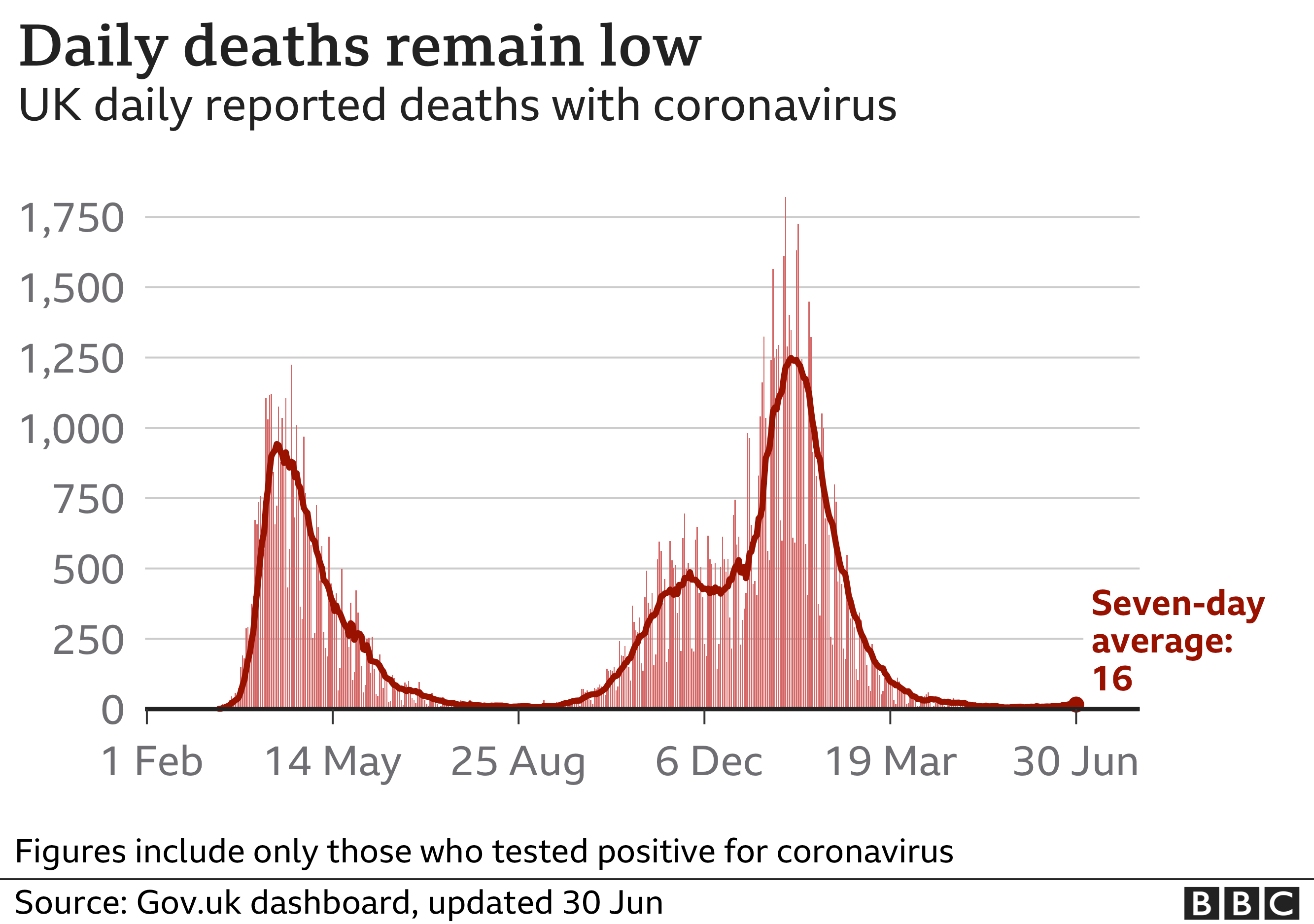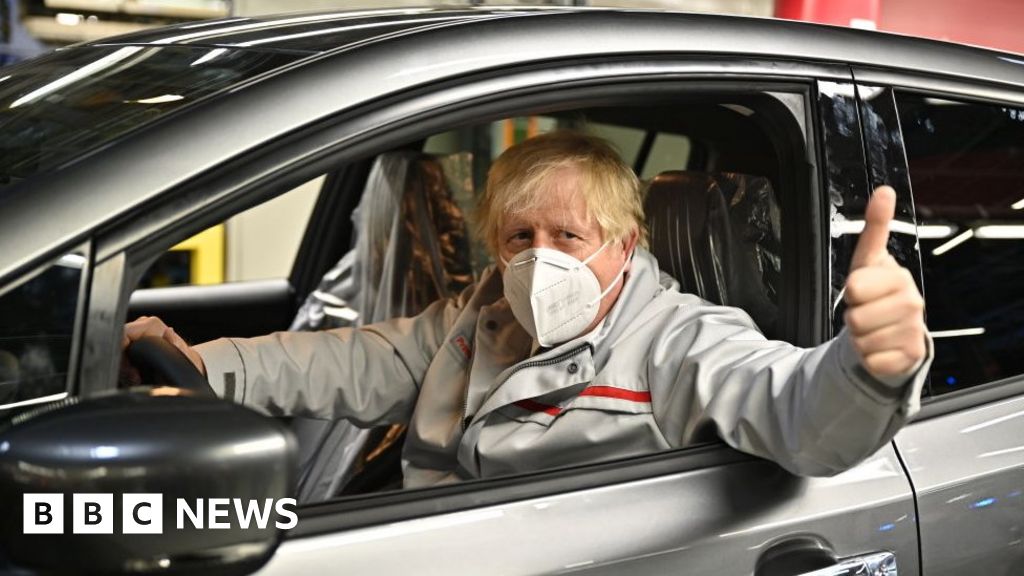The PM says he is hoping England will return to as close to the pre-pandemic status quo as possible on 19 July.
Boris Johnson said he would set out in the next few days what step four of the roadmap out of lockdown – due in just over two weeks – will look like.
But he added some “extra precautions” may still be needed and urged patience over the possibility of scrapping isolation for whole bubbles in schools.
The PM also said double jabs would be “a liberator” for foreign travel.
During a visit to a new Nissan plant in Sunderland, Mr Johnson was asked whether measures such as social distancing and masks would be removed on 19 July.
“I know how impatient people are to get back to total normality, as indeed am I,” he said.
“But I think I’ve said it before, we’ll be wanting to go back to a world that is as close to the status quo, ante-Covid, as possible. Try to get back to life as close to it was before Covid.
“But there may be some things we have to do, extra precautions that we have to take, but I’ll be setting them out.”
Asked about reports that fully-vaccinated people may be able to travel from amber-list countries without quarantining by 26 July, the prime minister told reporters: “Everybody who is frustrated about travel over the summer – double jabs will be a liberator.
“I want travel to be possible but I’ve got to stress that this year will not be like every other year, because of the difficulties with Covid. People shouldn’t expect it will be completely hassle-free.”
The government has previously said it wants to scrap quarantine for fully-vaccinated travellers returning from amber-list countries “later in the summer”.
Most popular holiday destinations are currently on the amber list, meaning people must isolate for up to 10 days on their return to the UK.


The prime minister was sounding very confident about lifting restrictions on 19 July, on his visit this morning to the Nissan vehicle factory in Sunderland.
What everyone wants to know is how far he’ll go when it comes to masks, social distancing, school bubbles, travel.
The feeling around Whitehall is that it’s going to be very close to a return to normal life.
I’m hearing that an announcement laying out these details could come as soon as next week, with final confirmation giving formal go-ahead a week later.

The prime minister’s comments come after the UK recorded 26,068 new cases on Wednesday – the highest daily figure since 29 January.
However, deaths remain low, with 14 deaths within 28 days of a positive test recorded on Wednesday.
Although the country has seen a “big increase in cases”, Mr Johnson said this was “not translating into a big increase in serious illness and deaths”.
He said it looked “ever clearer” that the vaccination programme had “broken the link between infection and mortality”.
“That gives us the scope, we think, on the 19th, to go ahead cautiously and irreversibly,” he added.




On the possibility of replacing isolation with daily testing to prevent whole groups of pupils needing to stay at home, Mr Johnson said Public Health England (PHE) were looking at the advantages of this.
“I understand people’s frustration when whole classes, whole bubbles, are sent home and people are asked to isolate,” he said.
However, the prime minister said PHE had not yet concluded their research, adding: “So what I want to do is just to be cautious as we go forward to that natural firebreak of the summer holidays when the risk in schools will greatly diminish, and just ask people to be a little bit patient,” he said.
If a pupil tests positive, anyone who has been in close contact with them is told to self-isolate.
This can result in whole classes or year groups being sent home.
More than 375,000 pupils in England are currently out of school because of Covid – but only 15,000 are positive cases.
It comes after a letter from 48 Conservative MPs urged the prime minister to end what they described as the “disproportionate” and “unsustainable” bubble system.
The group, including former Tory leader Sir Iain Duncan Smith and the chair of the Commons Education Committee Robert Halfon, are calling for schools to go “back to normal” on 19 July, when other restrictions in England are due to be lifted.
Meanwhile, sociologist Prof Robert Dingwall, one of the scientists advising the government, said “we have to ask very hard questions” about what restrictions and the test-and-trace programme are achieving now the most vulnerable have been offered a vaccine.
Professor Dingwall, who sits on the government’s New and Emerging Respiratory Virus Threats Advisory Group (Nervtag), told BBC Radio 4’s World at One: “We have never thought it was important to do differential diagnosis of school children with respiratory infections.
“If they’re not well enough to go to school, they don’t go to school – that’s the sort of equilibrium we need to be moving towards when the school year restarts in the autumn.”

- BUILDING QUEERTOPIA: Riyadh Khalaf discusses how he would build a utopia
- BEING AN INTERRACIAL COUPLE IN BRITAIN: Matt and Bongi look at the cultural differences in their marriage

